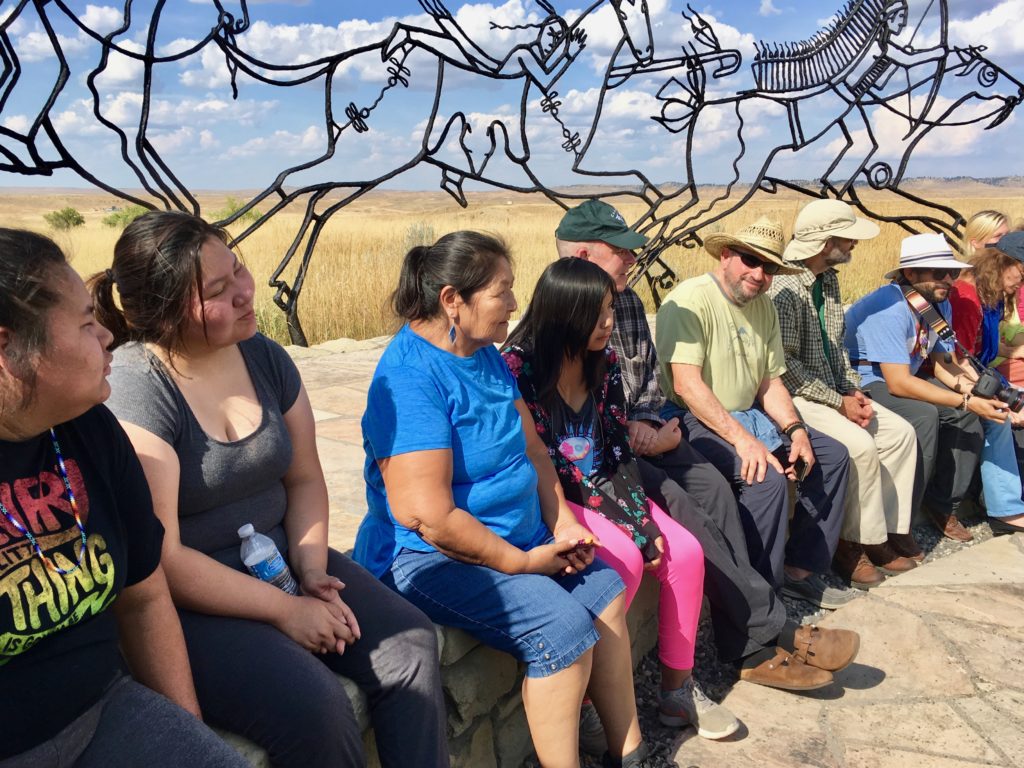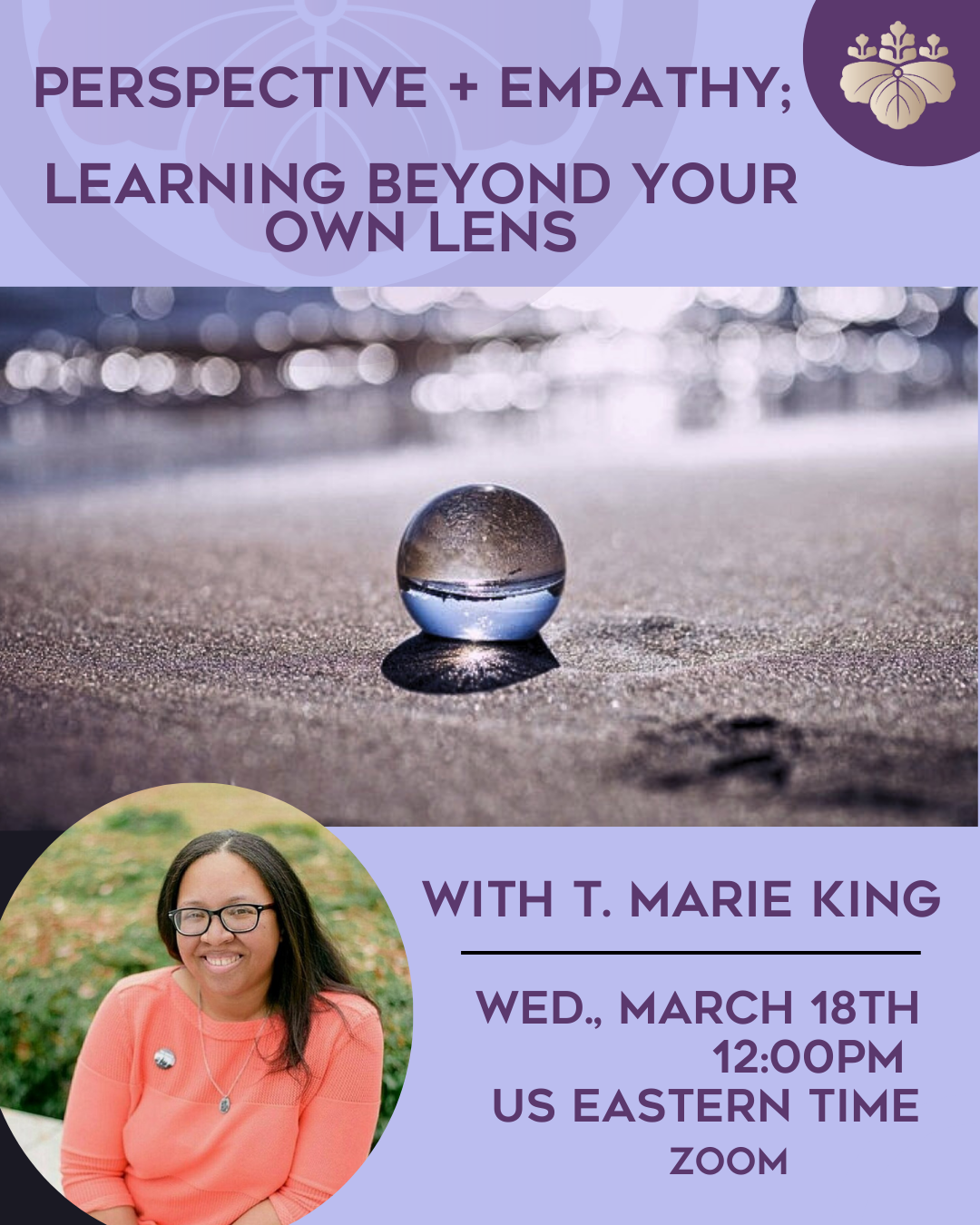I Was Once Very Angry: At Little Bighorn
CROW AGENCY, MONTANA, USA. Originally posted on Roshi Eve Marko’s Blog, August 16, 2017
I used to get so angry when I would come here, Violet Catches says.
At that time there was no monument to the Natives who fought here, just to the soldiers from the 7th Cavalry who died under Custer. It was George Bush who authorized the monument to the Lakota, Cheyenne, and Arapahoe in 2001.
All the tribes came here with their families, wives and children, for Sundance with Chief Sitting Bull. This is all sacred land. Instead it became a battleground.
Violet surveys the land around Little Bighorn. I’d read up on accounts of the battle, but who would have thought the place would be so beautiful, rolling long yellow grasses with large clusters of blue-gray sage (That’s very special sage, says Violet, and she will pick some later), all looking down at the green valley with the blue river snaking around groves of cottonwoods and a green meadow.
The enormous Natives’ encampment, come to do Sundance with Chief Sitting Bull along with their wives and children, left a trail half-a-mile wide. They were here, Custer came from there, Reno was here, Benteen was there. The rangers’ descriptions are loud and even theatrical, and why shouldn’t they be? While the direct battle with Custer only took three hours, the scouting and strategic parrying beforehand went on for several days, and in the telling it almost sounds like a Hollywood movie. Till you see the names of all those that were killed. Till you remember the long history of what brought it about, and what came afterwards, including Wounded Knee 15 years later, and so much more more more after that.
I wasn’t the woman you see now, Renee tells us. She’s the wife of Manny Iron Hawk, and he refers to her with a Lakota word denoting My Second Half. Together they do many presentations to groups all over Cheyenne River Reservation and as far north as Canada. They’re terrific together, each with his/her separate song, separate voice, singing in harmony. The song they sing is lilting and hopeful towards the end, but its early parts are painful to hear.
I was angry all the time. You lose everything you love—your land, your family, your traditions, your children and grandchildren. The hardest thing is when you’re not allowed to be who you are, you are not allowed to speak your language or practice your way of life. That’s what will cause you to be angry, that’s what will cause you to do alcohol and drugs, that’s what will bring violence into the family.
And then she, like so many other Lakota I have listened to, goes through a big change. Something happens, an awakening, a transformation, they stop dulling their pain with intoxicants, they face things squarely, and they learn how to deal with the rage that’s been inside since the time they were toddlers.
How do you do that, I wonder, when your parents acted out of trauma, out of mass violence, poverty, and family deaths (someone tells me that sociologists conclude that while the average American from European roots experiences 2 deaths before s/he is 18, the average Native American experiences closely some 30 deaths by that age, and hundreds more before his/her death at a younger age than the European American counterpart)? I think of my own family history, the Holocaust, of my parents witnessing and experiencing things no human should, of running and hiding and starving, of war and bloodshed. And yes, it’s there in the family, running its way through generations.
So what to do with so much anger? The elders’ humility and vulnerability shine as they share these personal stories with us right there, on a yellow hilltop under a hot sun, and I know that heroism isn’t just to be found in Little Bighorn, it’s there right now, palpably if less visibly, in men and women who refuse to continue the legacy of hating the Other and themselves, who model to the next generation—and to us—a very different way of being. They are not just our guides to Little Bighorn; they are our guides to a different way of living.
If only this could be the legacy of this place, purified finally not just by blue-gray sage but also by the actions of all its descendants, Indian and non-Indian.
Several more of Eve’s reflections on the 2017 Native American Bearing Witness Plunge can be found on her blog. Visit evemarko.com or check out the links below:
August 11th. Little Bighorn
August 15th. This Is Our Land
August 19th.Charlotteville and Devil’s Tower
August 24th. What’s Your Name?
Roshi Marko is a dharma successor of Roshi Bernie Glassman and a Founding Teacher of the Zen Peacemaker Order. Through her numerous writings and her role as one of the leaders of the Order’s annual bearing witness retreats at Auschwitz-Birkenau, she has made the teachings of Zen in the areas of peacemaking and love accessible to a broad audience.



2 reacties
Chii Mii Gwetch ~ Thank you so very, very much for all of the efforts you are giving on behalf of US ALL. I’m not sure how your blog found me., but my excitement factor zoomed way up. My background is 100% eclectic. I’m a little bit of everything, and a lot of which I’m not. It’s a long story, as most “Heart Warrior”* beings bear witness. *(Carl Jung’s term for those of us who came to earth to re-weave and return the not-love shadow constructs back into Unconditional Love.)
I would like to participate with you; I already am on other levels. My energies are in many pots, and in many realms of awareness. My funds are few and far apart, but my commitment to The Greatest Good for All Concerned is my essential core. My strongest areas of support at this time might be in writing and networking.
I am 1/4 Anishinaabe-Ojibwe, raised in a strictly White Anglo-Saxon Protestant environment. The staunch disparity in consciousness has given me much to address on my earth walk to unconditional love and freedom. I think I have the basics integrated; now I’m in the trim-tab phase of fine tuning and finer tuning.
Please let me know if you are experiencing a resonance with this little bit I’ve offered, and if you can envision a way I can be of support.
Thank you for your BEING, and all you have done and are doing on behalf of US ALL.
Joie ‘Round Star’ Bourisseau
Thank you for contacting us Joie, for your enthusiasm and support. We’ll get in touch through email shortly.